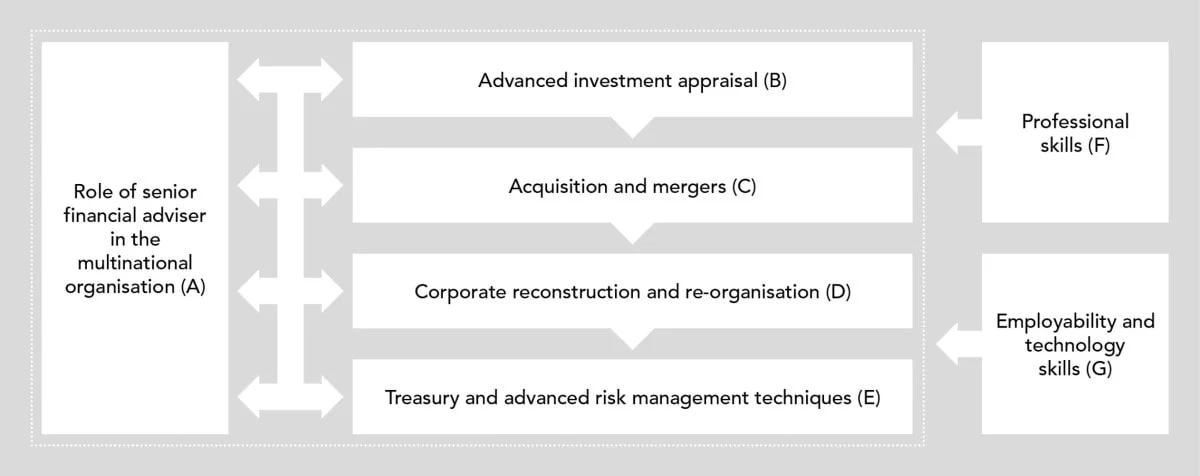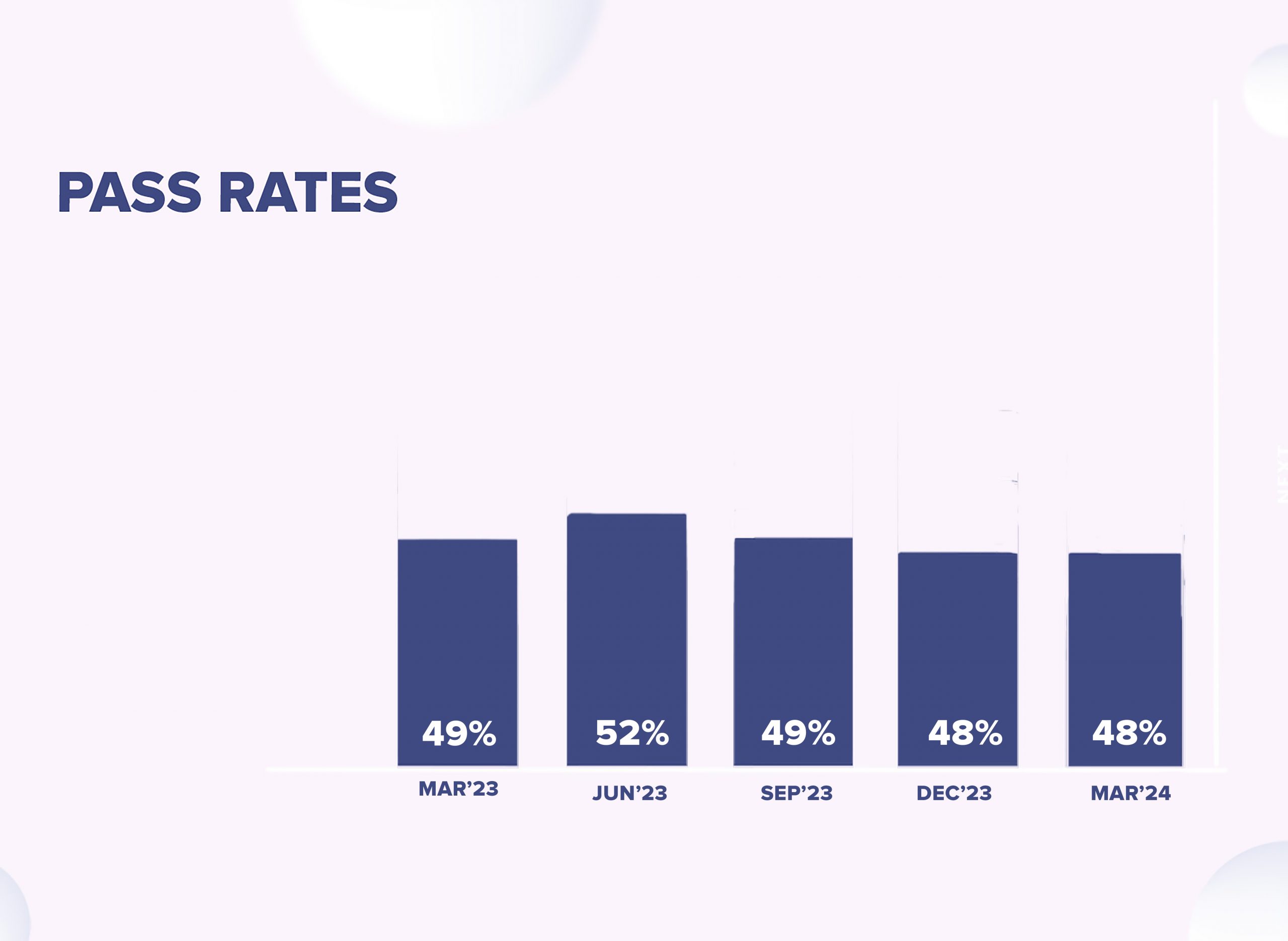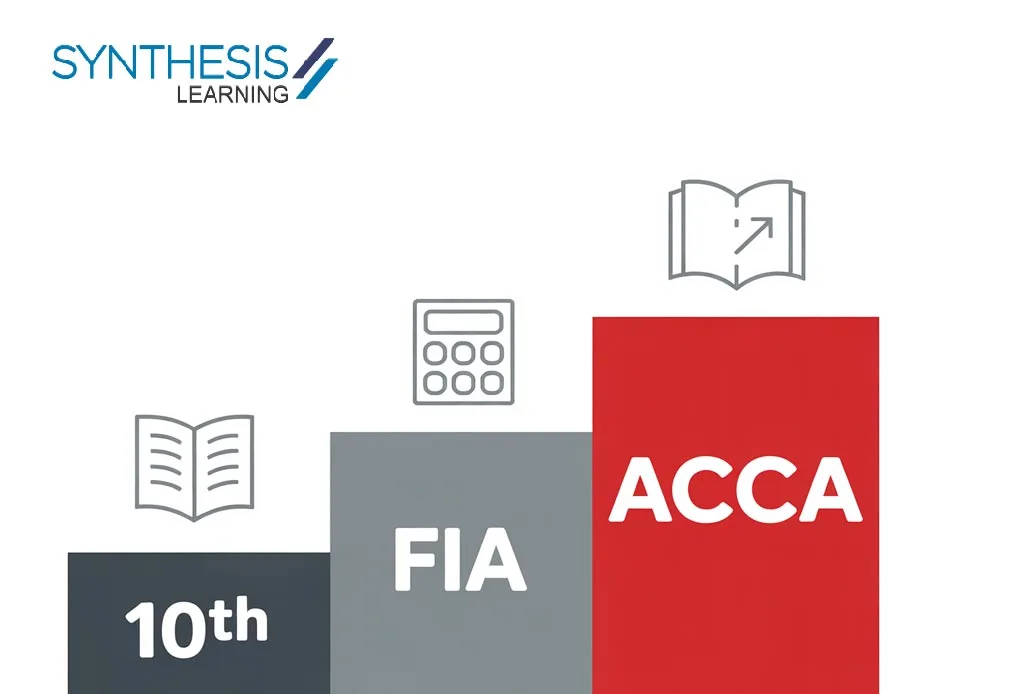The ACCA (Financial Management) Paper is designed to equip you with the skills needed for a Finance Manager role. It covers essential topics like investment decisions, financing strategies, and dividend policies. The ACCA FM course will teach you how to manage working capital, analyze the economic environment, evaluate investment opportunities, and identify financing sourcing. The ACCA FM exam is conducted four times yearly in March, June, September, and December. Mastery of ACCA financial management principles is crucial for excelling in the exam. This comprehensive approach ensures that you are well-prepared for a successful career after ACCA. You can read more about it here.
You can read more about it here.
Table Of Contents
ACCA FM SYLLABUS
ACCA FM PAPER PATTERN
ACCA FM PASSING TRENDS
SOURCES OF CONTENT
STUDYING METHODOLOGY
HOW TO PLAN ACCA FM MOCK EXAMS
THINGS TO REMEMBER WHILE WRITING THE EXAM
EXAMINER’S EXPECTATIONS
ACCA FM SYLLABUS
The ACCA FM syllabus is comprehensively designed to equip candidates with the skills expected from a finance manager responsible for the finance function of a business. The ACCA FM syllabus prepares candidates for more advanced and specialist Advanced Financial Management studies. Here is the detailed ACCA Financial Management (FM) syllabus, which provides comprehensive coverage of the key concepts and skills needed for effective financial management. Understanding this syllabus is crucial for excelling in the ACCA Financial Management exam and mastering financial management principles.
 A. Financial Management Function
A. Financial Management Function
- The nature and purpose of financial management
- Financial objectives and relationship with corporate strategy
- Stakeholders and impact on corporate objectives
- Financial and other objectives in not-for- profit organisations
 B. Financial Management Environment
B. Financial Management Environment
- The economic environment for business
- The nature and role of financial markets and institutions
- The nature and role of money markets
 C. Working Capital Management
C. Working Capital Management
- The nature, elements and importance of working capital
- Management of inventories, accounts receivable, accounts payable and cash
- Determining working capital needs and funding strategies
 D. Investment Appraisal
D. Investment Appraisal
- Investment appraisal techniques
- Allowing for inflation and taxation in DCF
- Adjusting for risk and uncertainty in investment appraisal
- Specific investment decisions (lease or buy, asset replacement, capital rationing)
 E. Business Finance
E. Business Finance
- Sources of, and raising, business finance
- Estimating the cost of capital
- Sources of finance and their relative costs
- Capital structure theories and practical considerations
- Finance for small- and medium-sized entities (SMEs)
 F. Business Valuations
F. Business Valuations
- Nature and purpose of the valuation of business and financial assets
- Models for the valuation of shares
- The valuation of debt and other financial assets
- Efficient market hypothesis (EMH) and practical considerations in the valuation of shares
 G. Risk Management
G. Risk Management
- The nature and types of risk and approaches to risk management
- Causes of exchange rate differences and interest rate fluctuations
- Hedging techniques for foreign currency risk
- Hedging techniques for interest rate risk
 H. Employability and technology skills
H. Employability and technology skills
- Use computer technology to efficiently access and manipulate relevant information
- Work on relevant response options, using available functions and technology, as would be required in the workplace
- Navigate windows and computer screens to create and amend responses to exam requirements, using the appropriate tools
- Present data and information effectively, using the appropriate tools
Hack:Remember that all the topics are equally important while studying the ACCA course exam syllabus. You should begin with Part B: Investment Appraisal -> then Part C: Working Capital -> followed by Part D: Business Finance and Cost of Capital -> and Part E: Business Valuations. This strategy will ensure you have covered a significant chunk of the ACCA FM syllabus, leaving enough time to focus on Part F: Risk Management. Part A: The financial management environment and function is a theory topic you can go to the end.
ACCA FM Exam Structure
The ACCA FM exam consists of 100 marks divided into three sections. This structured approach ensures that all areas of the ACCA FM syllabus are adequately covered, providing a balanced evaluation of a candidate’s knowledge and skills. This ACCA FM exam structure is designed to test a range of competencies through its well-defined components:
- Section A: 15 Objective Test Questions (OTQs) worth 30 marks.
- Section B: Three case studies with 15 OTQs totaling 30 marks.
- Section C: Two constructed response questions, each worth 20 marks.
By adhering to this ACCA FM exam structure, the exam effectively measures a candidate’s grasp of financial management principles and their practical application. This is especially relevant for students pursuing ACCA after 12th.
ACCA FM Exam Format
The ACCA FM exam is assessed by a three-hour computer-based examination (CBE) format, allowing for a more interactive assessment experience. It is held four times a year: March, June, September, and December, providing candidates with multiple opportunities to sit for the exam.
Familiarity with the ACCA FM syllabus and exam format is crucial for success. It helps candidates understand the types of questions they may encounter and the overall structure of the exam, especially when supported by ACCA online classes. Students can enhance their readiness for the ACCA FM exam by engaging with practice materials and mock exams, ensuring they are well-prepared with the ACCA exam syllabus and ready to tackle the challenges ahead.
ACCA FM PAPER PATTERN
The 100-mark ACCA FM exam paper has been designed to ensure that all the different areas of the syllabus are covered adequately. Following are the various sections and question types that you can expect-
| ACCA Financial Management (100 Marks) | ||
|---|---|---|
| Section A (30 marks) | Section B (30 marks) | Section C (40 marks) |
| 15 OTQ’s * 2 marks each | 3 case studies * 5 OTQ’s in each case study * 2 marks each | 2 Constructed response questions * 20marks each |
Hack: Solve all questions from the Practice Kit to ensure different styles of questions are covered. To pass with flying colors, the practice kit should be solved a minimum of 2-3 times.
ACCA FM Syllabus Guide
As mentioned above, the ACCA FM syllabus prepares students for managerial roles in finance., particularly in dividend decisions, financing, and investments. Upon completion of the ACCA FM syllabus, candidates must be able to:
- Understand the purpose and role of financial management.
- Evaluate the influence of the economic environment on financial management.
- Apply the techniques of working capital management.
- Conduct investment evaluations
- Identify sources of business finance.
- Apply principles of asset valuation.
- Be able to apply risk management techniques in business.
ACCA FM PASSING TRENDS
You are expected to score 50/100 to pass this examination. This is easily manageable with a clear understanding of the concepts, good practice of the questions, and a positive attitude. The pass rates of ACCA FM paper across the globe are between 45% and 55 % for most attempts. The ACCA FM pass rates can be influenced by factors such as changes in exam format, the effectiveness of preparatory courses, and candidates’ familiarity with the exam content.
SOURCES OF CONTENT
You need to refer to these two content sources and the ACCA FM study material primarily for your preparations.–
- The Study Text – for conceptual understanding
- The Practice/Exam Kit – for practice questions
You should consider only two ACCA-approved content providers: Kaplan Publishing and BPP Learning Media. Apart from this, you can also refer to the technical articles published by ACCA on different topics. You can use this link to refer to the articles-
Download our FREE Revision notes for ACCA FM here
How To Pass Financial Management
To pass the ACCA FM exam, familiarize yourself with the syllabus. Develop a study plan that will help you dedicate ample time to each topic, especially if you are pursuing ACCA after 12th. Focus on the topics in the ACCA FM exam and ACCA exam syllabus that you need to be better versed in. Utilize ACCA FM study material from modules by Synthesis Learning and take practice tests to evaluate your progress. Engage with our expert tutors for their great FM study tips. Stay informed about the ACCA exam format by regularly reviewing ACCA’s guidelines.
STUDYING METHODOLOGY
- Start with the ACCA FM Study Text and thoroughly review all the concepts. Take Later, try solving questions from the Practice Kit to gain more clarity and a deeper understanding of applying these concepts.
- To gain a better understanding, we encourage students to contact our expert tutors to get great FM study tips and access the ACCA FM study material.
- Focus more on critical areas, such as investment appraisal (net present value), cost of capital (weighted average cost of capital), business valuation, and risk management (money market hedge).
- Spend enough time understanding and doing the theory well rather than focusing only on numbers. Many theory questions in the Financial Management exam and the practical questions test your ability to explain the concepts well.
- While solving the constructed response questions from the Practice Kit, it is helpful to review the key answer tips, tutor’s top tips, tutorial notes, examiner’s comments, and solutions.
- Practice a few constructed response questions using basic MS Word and MS Excel features. Also, you can use the constructed response ‘blank workspace’ provided by the ACCA after logging in to the Practice Platform to get a hold of the CBE environment. You can follow through this link.
- You should be able to demonstrate the knowledge gained from studying technical concepts and explain the theoretical concepts well during the examination.
- Before you take the exam, engage with industry experts from Synthesis Learning to enhance FM exam techniques.
HOW TO PLAN ACCA FM MOCK EXAMS
Attempting enough mock exams is a must! Going without solving mocks is like a soldier without a weapon.
The examination is now conducted using the CBE platform; writing at least 2-3 mocks is essential to understand how the final examination would be and get used to the CBE environment.
You can log in to the ACCA ‘Practice Platform’ for solving mocks using the following link.
Hack: One day before the examination, invest all your time revising what you have studied. Do not try to study any new concept or solve any new problem. Skim through the study text and practice kit to focus on memorizing the essential concepts, theory topics, and formulas if required. Look at the formulae sheets & maths tables (link) you will be provided with during the exam.
THINGS TO REMEMBER WHILE WRITING THE EXAM
After months of all the effort and hard work you would’ve put into the preparation for this exam, it is equally important to ace your exam. Here are some things to remember-
- Time Management: It is essential to complete the paper on time. Remember, time management is a key to success! Here is how you can allocate your time and our FM exam techniques
| PAPER | FM | TOTAL |
|---|---|---|
| Section A | 15 OTQ’s * 2.67 mins | 40 minutes |
| Section B | 15 case study OTQ’s * 2.67 mins | 40 minutes |
| Section C | 2 questions * 45 mins each | 90 minutes |
| Final check | 10 minutes | |
| TOTAL | 180 minutes |
- Do not stress or panic during the exam. Stay calm and write all you know. If you freak out, you may mess up other straightforward, manageable, and scoring questions.
- Do not leave any questions unattempted.
- For your OTQs, there is always a 25% probability of getting the answer right. Place your bet and mark the option you believe is the closest to the answer.
- For constructed response questions, there is no negative marking. So, based on your understanding of the concepts, make sure you form an answer to every question asked.
- Be prepared to find different and new styles of questions. With patience and by linking to the concepts of your syllabus, you should be able to tackle them well.
- Better to start with Section A first, then Section B, and lastly Section C, i.e., FOLLOW THE ORDER! Only spend a little bit of time finding answers to questions you cannot crack. Section C: Make sure you show the workings and the solution for the numerical questions wherever needed. For theoretical questions, write enough to earn marks. One healthy and valid point is worth one mark.
EXAMINER’S EXPECTATIONS
The ACCA publishes an Examiner’s Report for every attempt, giving insight into the marking process, the common mistakes students make during exams, and other useful techniques for doing well. You must review the Examiner’s Reports to understand what the examiner expects from you. It will help you understand how students have failed to tackle different questions and how they could have performed better. It’s like learning from someone else’s mistakes. You can follow this link to refer to a few of the examiner’s reports published by the ACCA.
Synthesis Learning: Your Partner To Ace ACCA FM Exams
ACCA’s Highest Quality Rating: Platinum Approved Partner for top-notch education.
Rigorous, Stellar Education: Platinum Status reflects our rigorous standards and exceptional training through expert tutors.
Learn Your Way, Anywhere: Flexible learning modes (Classroom, Live Online, Self-paced) fit your schedule and style.
Click on the Link
Join the High Achievers: Surround yourself with ambitious students & global rankers.
Click on the Link
Success Stories: Get inspired by real ACCA & career launch stories. Plan your path to the top.
Watch on YouTube
Ready to Start?
Visit our ACCA coaching page for courses after 12th Commerce for more info. Watch our success stories on YouTube and see how Synthesis Learning can help you ace your ACCA FM exams. Let’s get started!
Conclusion
The esteemed ACCA FM qualification will help you gain crucial skills. Each step in the preparation journey will increase your financial knowledge and prepare you for the world of finance. With our highly qualified tutors, you can master the ACCA FM syllabus and get top marks in the exam.
As you progress, it is equally motivating to understand the career outcomes of this qualification, including the ACCA salary in India and the opportunities it opens across industries.
All the best 😊
Our expert tutors for ACCA Financial Management (ACCA FM) have successfully coached thousands of ACCA aspirants with a phenomenal passing rate. Over 92% of our students who completed our entire eLearning program passed their exams (92% was an average of all our qualification courses over the last two years at the time of writing). Join their club with our Platinum-Rated ACCA Online Courses today! Book a demo.
Summary of all links
Technical articles published by ACCA
Blank workspace provided by the ACCA

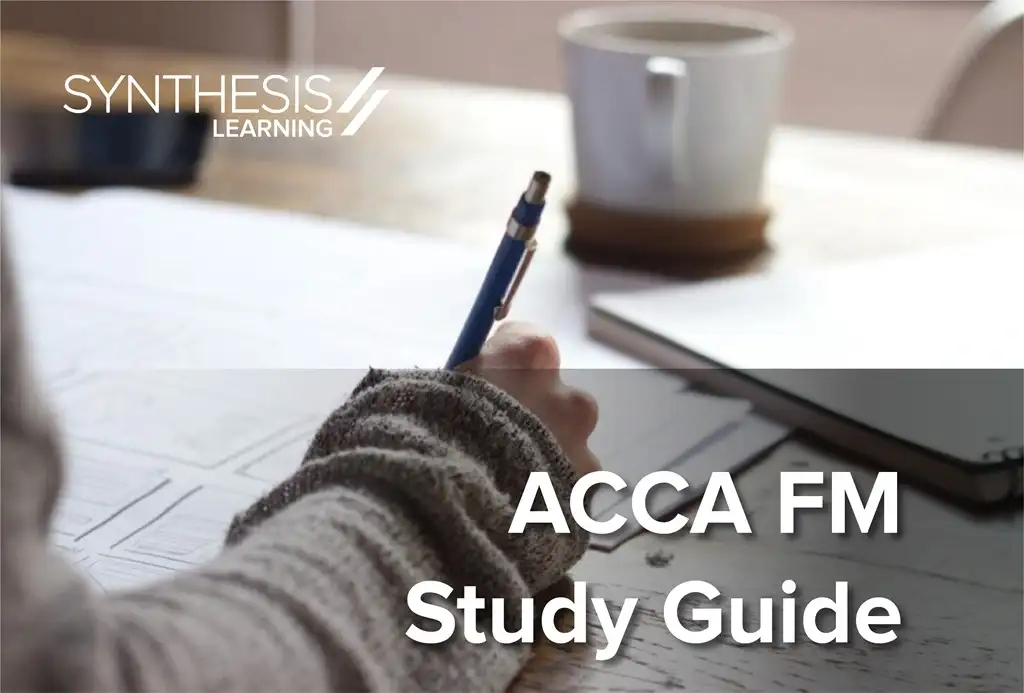
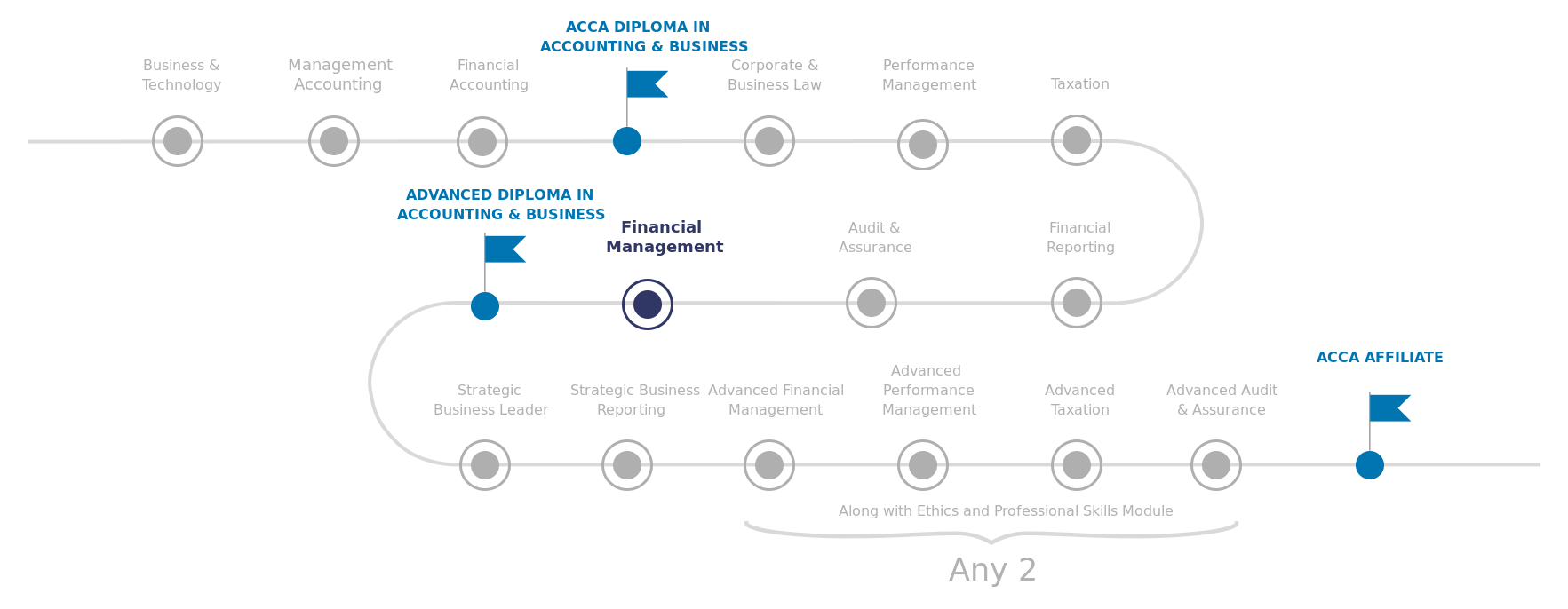
 A. Financial Management Function
A. Financial Management Function B. Financial Management Environment
B. Financial Management Environment C. Working Capital Management
C. Working Capital Management D. Investment Appraisal
D. Investment Appraisal E. Business Finance
E. Business Finance F. Business Valuations
F. Business Valuations G. Risk Management
G. Risk Management H. Employability and technology skills
H. Employability and technology skills